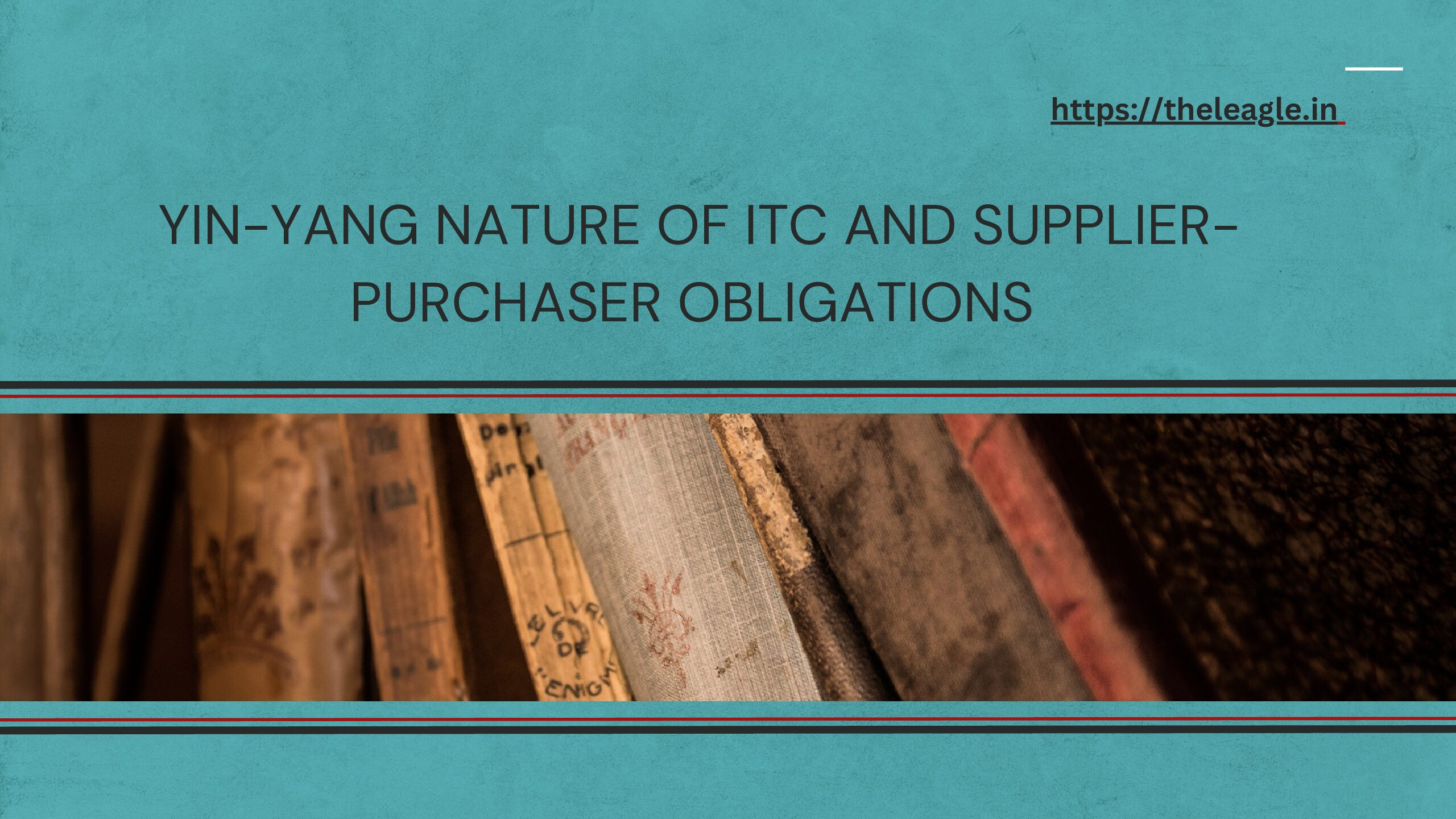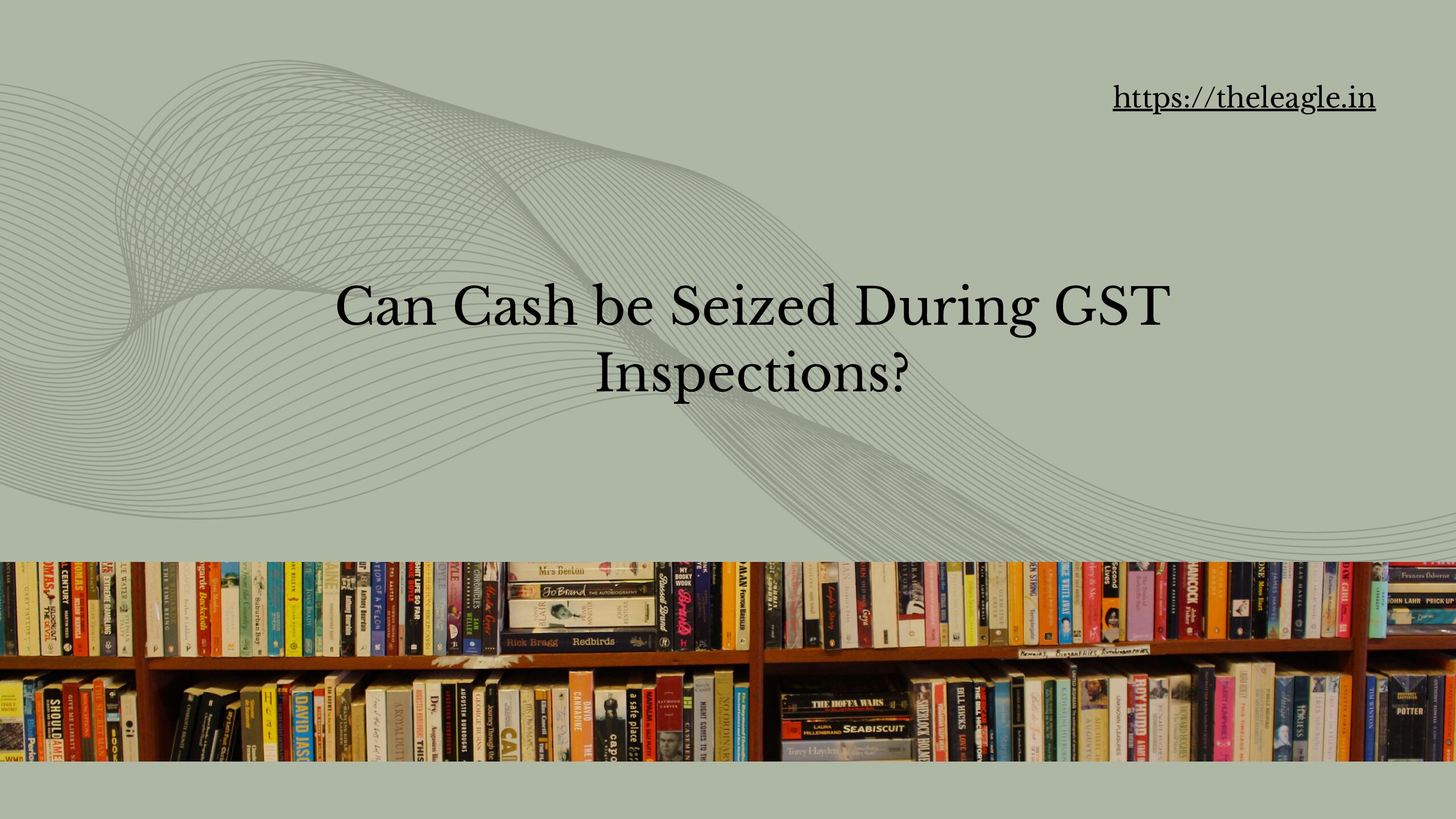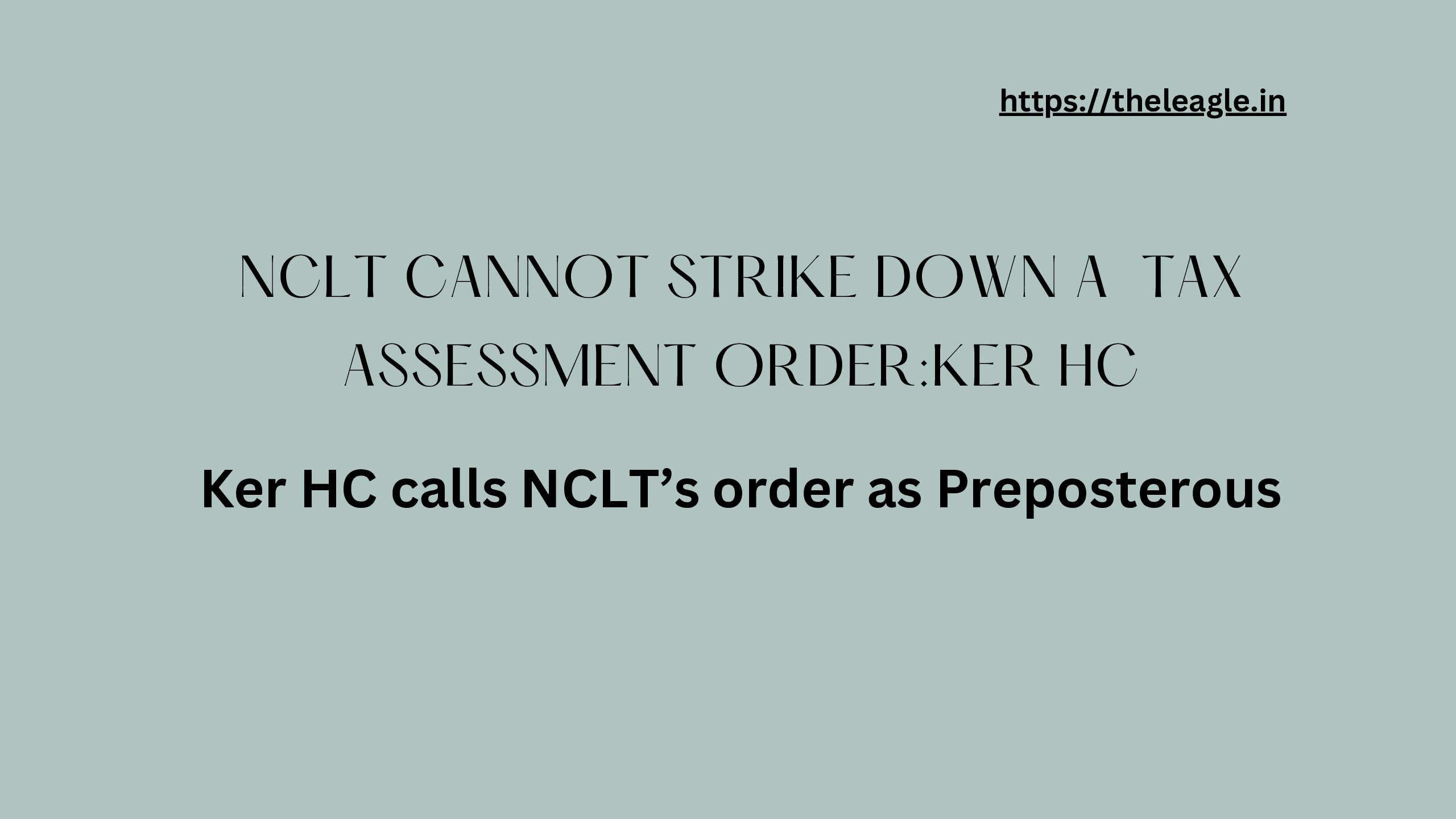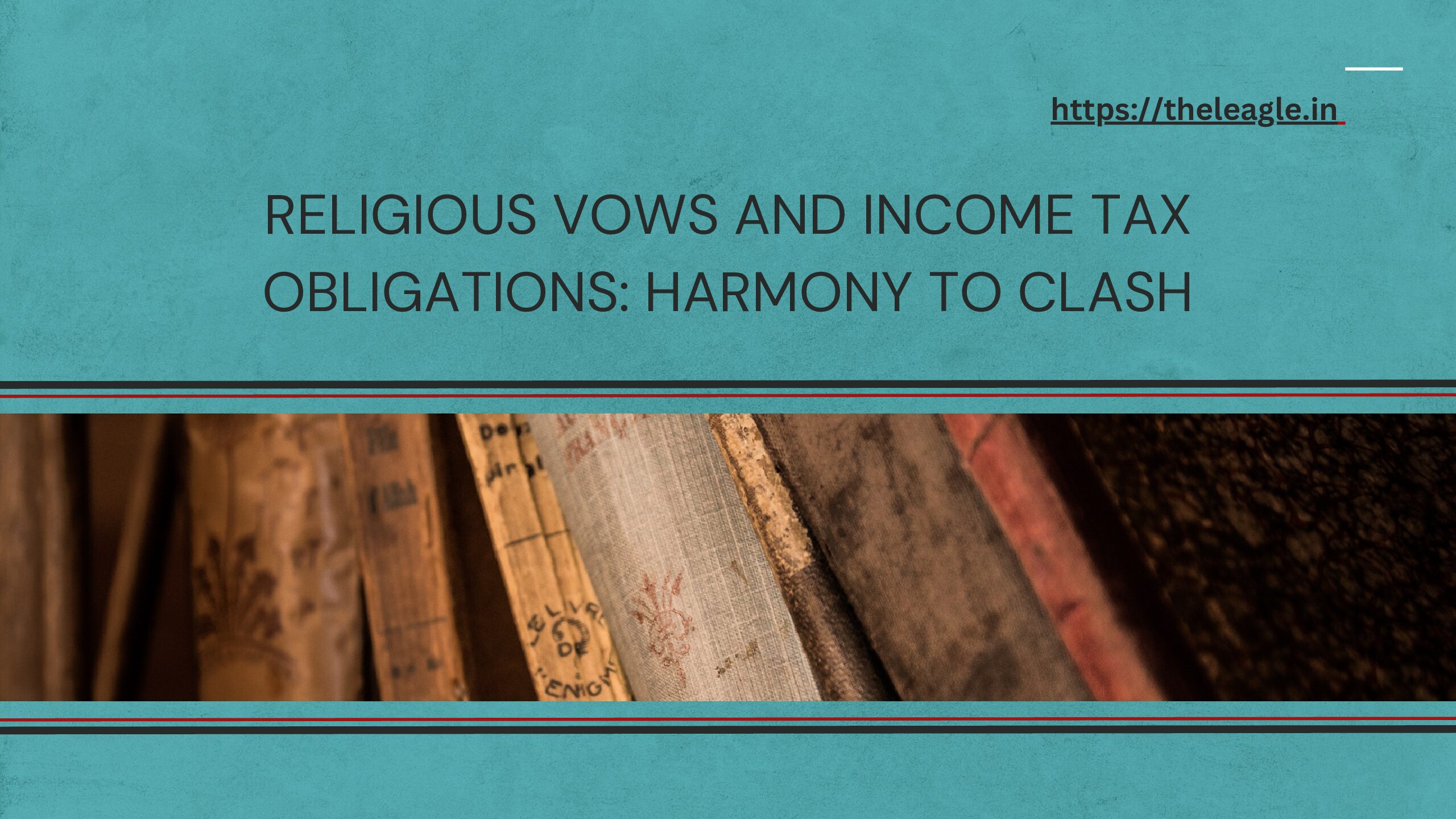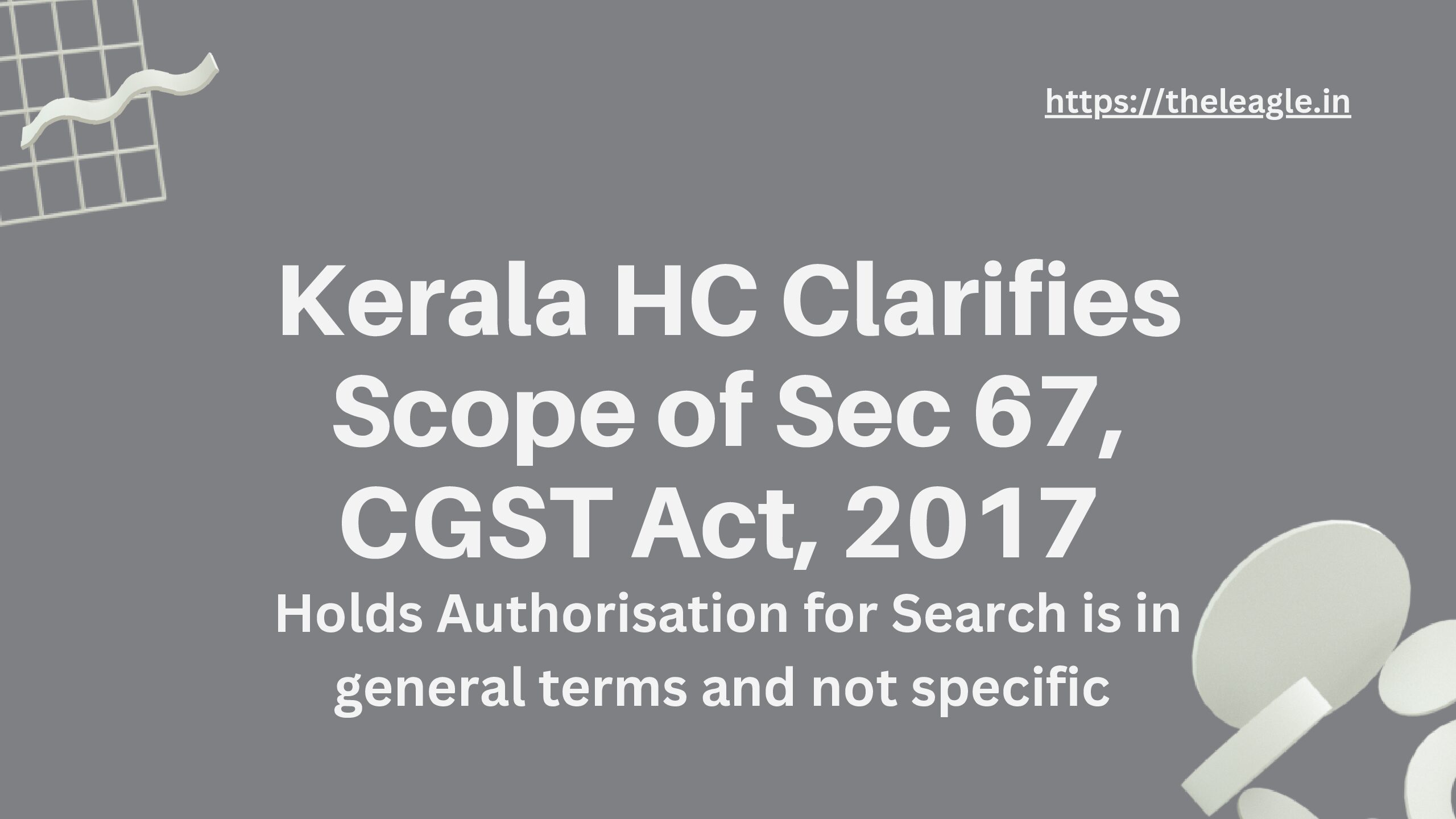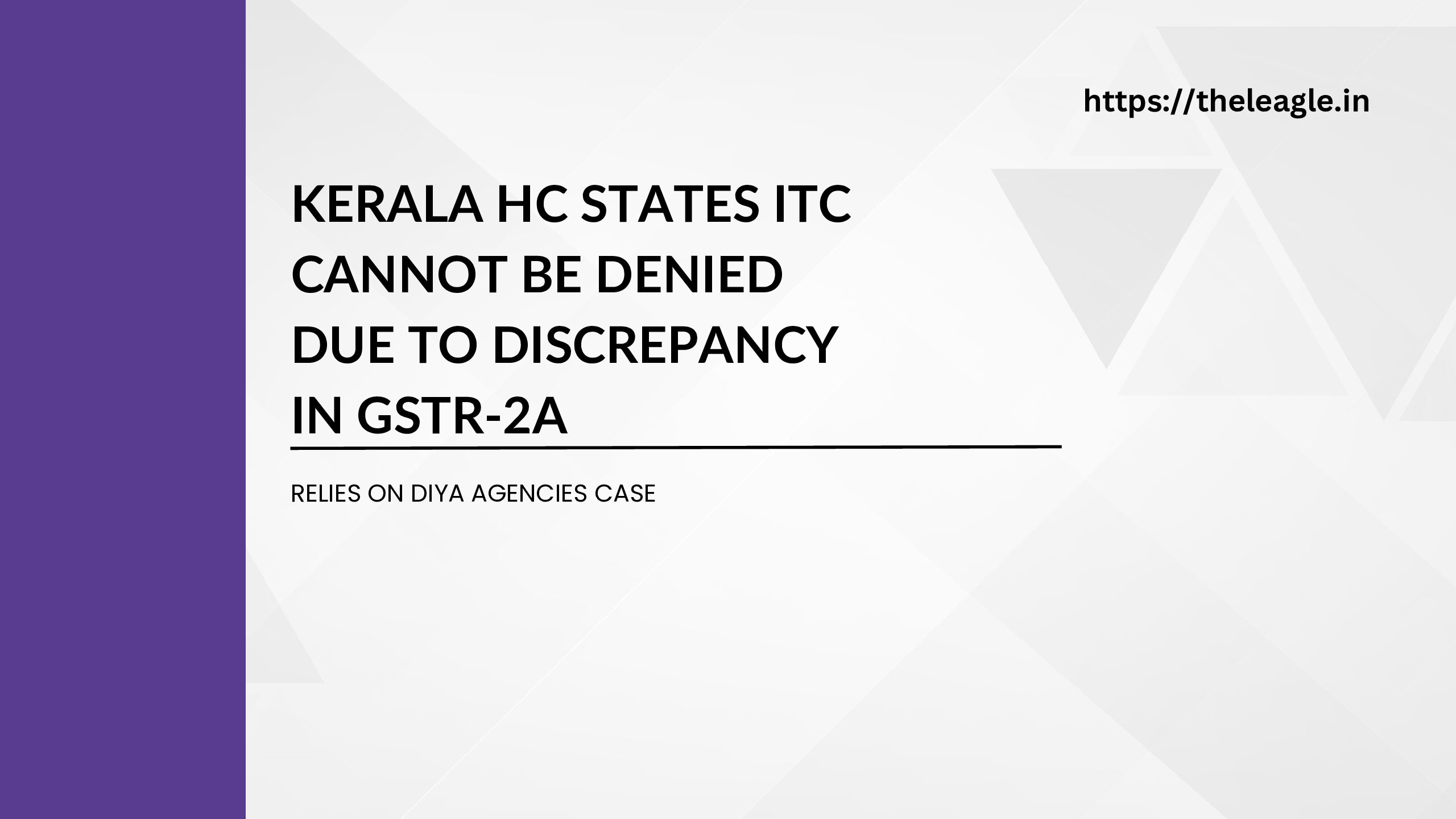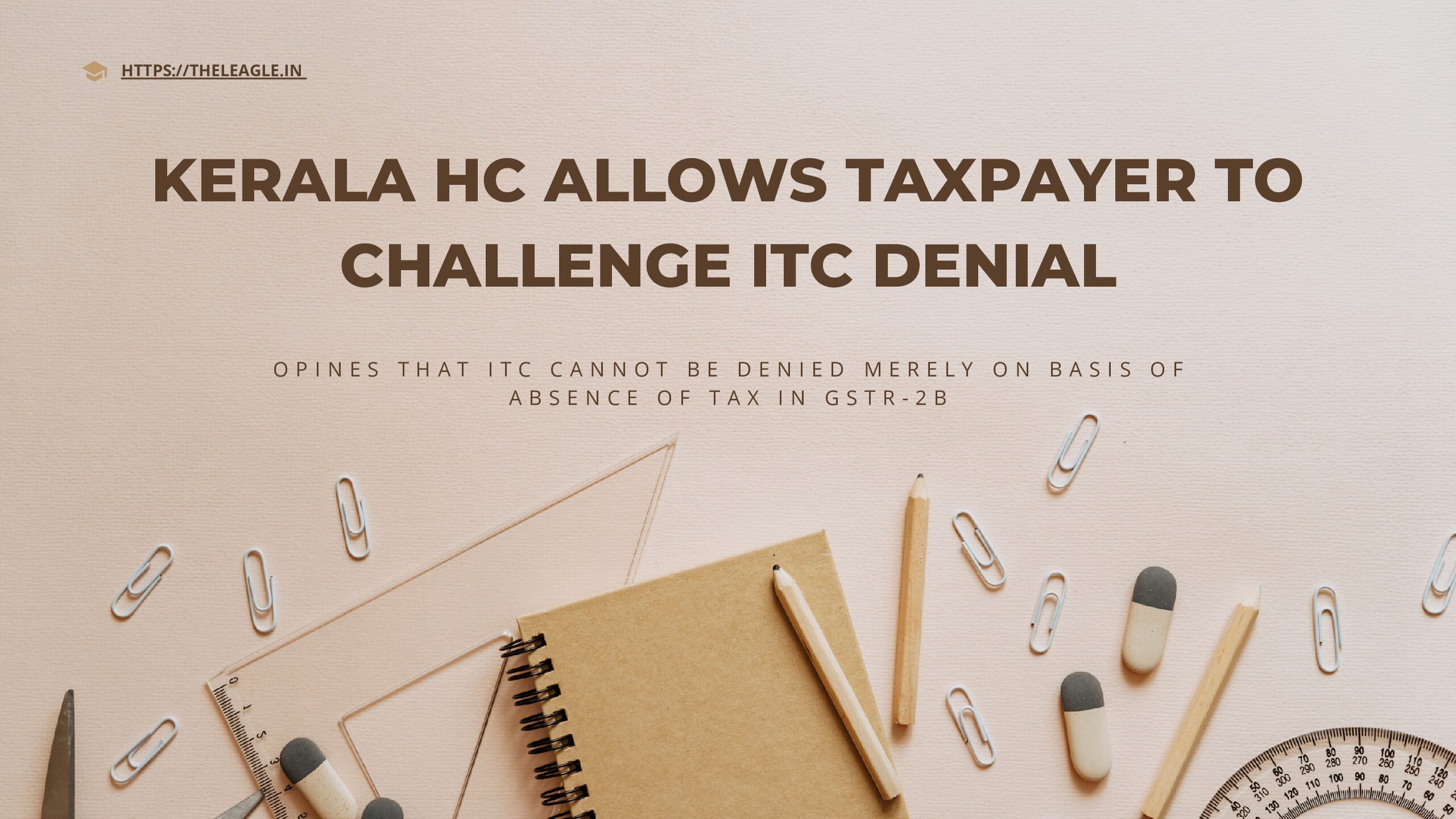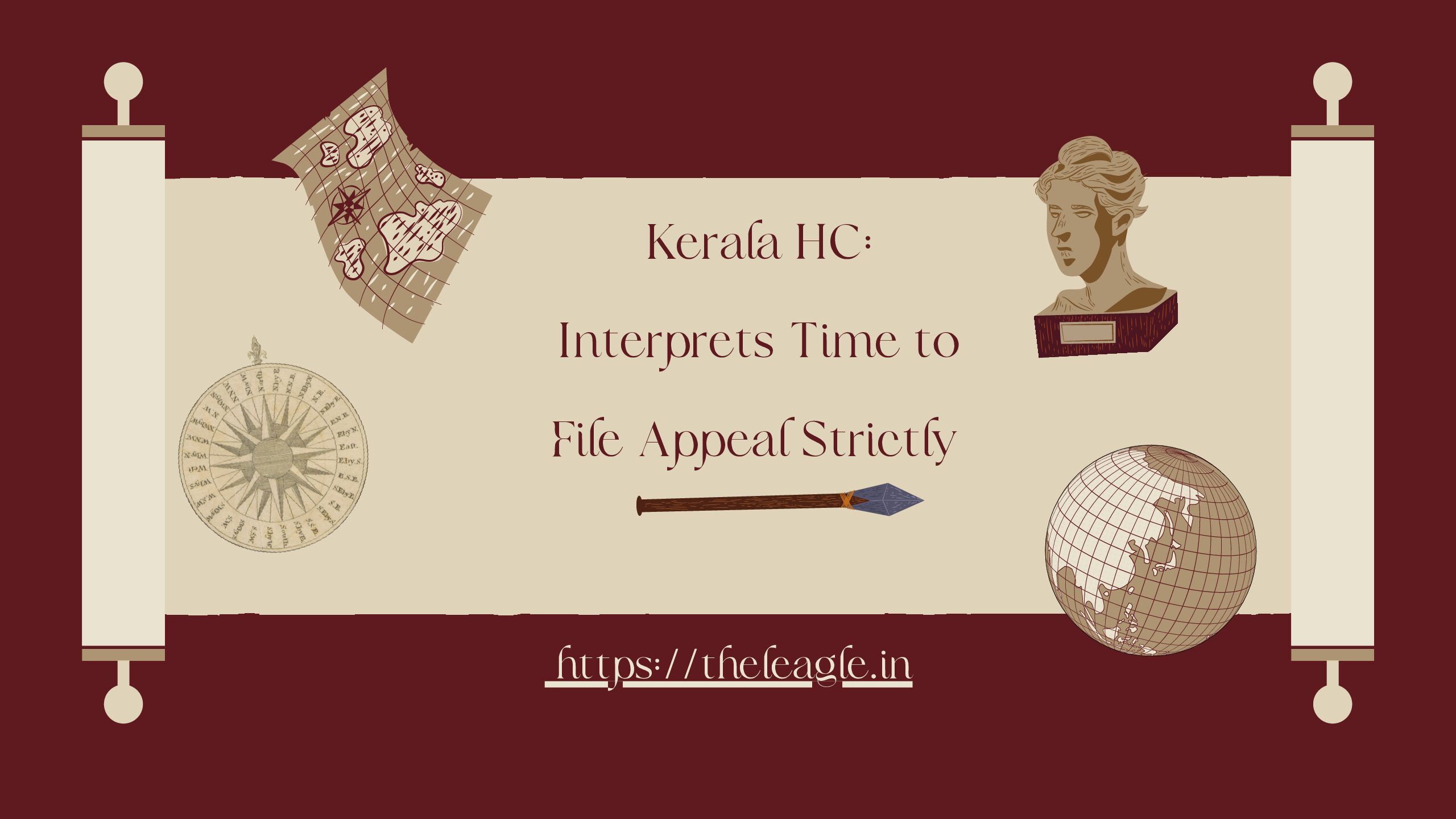In a recent decision, the Kerala High Court upheld constitutionality of Section 16, CGST, 2017, specifically Section 16(2)(c) which restricts the ITC of a purchasing dealer (‘purchaser’) if the supplier has not remitted tax collected from the purchaser to the Government. The decision examines validity of the conditions to claim ITC under Section 16(2)(c) and Section 16(4). In this article, I examine the only the former by headlining two under-examined aspects of ITC: first, nature of ITC as a right/concession; second, the reliance of purchaser on supplier to claim ITC. Both aspects influence each other and in turn the success or otherwise of claims related to ITC. The issue relating to time limit for claiming ITC under Section 16(4) – though an influential part of the judgment – will be subject of a separate post.
ITC: Right or a Concession?
One of petitioner’s contention before the Kerala High Court was that ITC is a right of the purchaser and not a concession given by the Government. And since ITC is a property of the purchaser, denying the same for supplier’s default to remit tax is violative of purchaser’s right to property under Article 300A of the Constitution. The State countered the purchaser’s argument and argued that ITC is a concession granted by the State to avoid cascading effect of taxes, and the State can impose such restrictions as it deems fit to restrict taxpayer’s claim for ITC.
In deciding the true nature of ITC, and whether it is a right or a concession, the Kerala High Court gave an unambiguous conclusion that:
The Input Tax Credit is in the nature of a benefit or concession extended to the dealer under the statutory scheme. Even if it is held to be an entitlement, this entitlement is subject to the restrictions as provided under the Scheme or the Statute. The claim to Input Tax Credit is not an absolute right, but it can be said that it is an entitlement subject to the conditions and restrictions as envisaged in Sections 16(2) to 16(4), Section 43, and Rules made thereunder. (para 71) (emphasis added)
The Kerala High Court cited a slew of precedents that aligned with its conclusion. The language here is noteworthy: the High Court is clearly leaning in favor of ITC being a concession and not a right, though it says it is not an ‘absolute right’. What does it mean? It can imply that either ITC is a limited right and can be subject to certain conditions by the State. Or that ITC is not a right but a concession. The latter seems more likely, but it is not clear. But does the distinction matter? If ITC is a taxpayer’s right, then it imposes a greater burden on the State before curtailing it. While conceptualizing ITC as a concession provides the State a comparatively wide leeway to impose conditions before allowing a taxpayer to claim ITC. If the policy decision of providing taxpayers of claiming ITC is a concession from inception, then even onerous restrictions on such claims are within the State’s remit. And a taxpayer needs to fulfil the conditions – onerous or otherwise – to successfully claim ITC since there is no vested right to claim ITC. The State has extended a concession on certain conditions and to avail the concession, the taxpayer needs to fulfil the prescribed conditions.
In abstract, there are no easy answers if ITC is a concession or a right, though I’ve suggested elsewhere that if we bifurcate the stages of ITC: first stage involving claim of ITC and then the latter stage of utilizing ITC, there is room to suggest that ITC should be understood as one or the other depending on which stage is relevant to the case at hand. But a broad approach that ITC is a concession, irrespective of whether it is the stage of claiming of ITC or its utilization may not be the best way to answer this dilemma. The Kerala High Court does mention that GST laws contemplate four stages vis-à-vis ITC but didn’t co-relate it to the issue of nature of ITC. (para 11)
Finally, it never was the purchaser’s claim that ITC is an absolute right. The purchaser’s claim was that if the conditions prescribed under the statutory provisions and rules have been fulfilled by the purchaser, then ITC transforms into its right, and denial of the same amounts to violation of right to property. By dismissing the argument by characterizing it as a claim for an absolute right, the Kerala High Court did not to do justice to the petitioner’s claim. Also, the core question before the High Court was whether the onerous conditions such as those prescribed under Section 16(2)(c) and Section 16(4), place all purchasers – bona fide and those colluding with suppliers – in a similar category and thereby violate Article 14 of the Constitution. The High Court’s analysis of the arguments relating to Article 14 was bereft of a comprehensive analysis as I elaborate in the section below.
Purchaser’s Reliance on Supplier
Section 16(2)(c) states that no person shall be entitled to claim ITC unless the tax charged in respect of such supply has been actually paid to the Government either in cash or utilization of ITC admissible in respect of such supply. This condition translates into the supplier filing their monthly return – GSTR-1 – indicating its outward supplies for the month. The information in the said return will auto-populate a return of the purchaser – GSTR-2A – which will indicate the inward supplies of the purchaser. The latter informs the purchaser’s claim for ITC. As is understandable, the purchaser is dependent on the supplier filing GSTR-1 accurately and in a timely fashion to enable it to claim ITC.
The purchaser’s argument was that GSTR-2A is a dynamic, read-only document, and is merely a facilitation document. And if certain purchases are not reflected in GSTR-2A, then it cannot be the basis of denial of ITC. The purchaser argued that if it possesses all the documents listed in Rule 36, CGST Rules, 2017, i.e., tax invoice, proof payment, actual receipt of goods then it should be presumed to have discharged the burden of genuineness of its ITC claim. Also, the purchaser cannot be burdened to ensure that the supplier has remitted the tax as it an impossible condition to fulfil for the purchaser. In the absence of purchaser lacking the resources to force a supplier to remit the tax, the doctrine of impossibility should be applicable. And since Section 16(2)(c) prescribes an impossible condition, it should be held as unconstitutional.
The purchaser’s final argument vis-à-vis Section 16(2)(c) was that the provision treats bona fide purchasers similarly as purchasers that collude with suppliers to fraudulently claim ITC thereby being violative of Art 14. The purchaser’s claim was that denial of ITC to bona fide purchaser for supplier’s default in tax payment was arbitrary and irrational exercise of power. The purchaser also made an alternative argument that Section 16(2)(c) should restrict its ITC only if mala fide on its part was established. And that purchaser’s ITC should not be blocked if it has all the documentary evidence and by extension a prima facie proof of its bona fide intent and transaction.
State’s defence of making the purchaser’s claim of ITC dependent on supplier’s payment of tax was as follows: the State argued that ITC ‘crosses State borders’. The supplier in originating State USES SGST/CGST credits of IGST collected from the purchaser and the latter will discharge output liability by claiming SGST/CGST credits of the IGST paid to the supplier. The originating State and the Union are under an obligation under Section 53, CGST Act, 2017 to transfer the CGST/SGST component utilized by the supplier and make it available to the destination State, since GST is a destination-based tax. The State’s claim was that if the supplier defaults in remitting the tax, but purchaser it allowed to claim ITC based on invoice, the originating State would have transferred tax to destination State without the former having received the tax.
The purchaser raised some important and vital Constitutional arguments, but the Kerala High Court’s summary analysis was a complete endorsement and replication of the State’s argument and it concluded that:
Considering the aforesaid scenario, without Section 16(2)(c) where the inter-state supplier’s supplier in the originating State defaults payment of tax (SGST+CGST collected) and the inter-state supplier is allowed to take credit based on their invoice, the originating State Government will have to transfer the amounts it never received in the tax period in a financial year to the destination States, causing loss to the tune of several crores in each tax period. (para 83)
The Kerala High Court added that:
… this renders the whole GST laws and schemes unworkable. Therefore, as contended, the conditions cannot be said to be onerous or in violation of the Constitution, and Section 16(2)(c) is neither unconstitutional nor onerous on the taxpayer. (para 84)
The Kerala High Court dismissed the Constitution and fundamental rights-based arguments by agreeing to the State’s argument about administrative workability of the GST. But the High Court never seriously engaged with the argument if Section 16(2)(c) places a bona fide purchaser in the same category as a purchaser who colludes with a supplier to claim ITC fraudulently. The two categories of purchasers, prima facie, constitute two different categories. Neither was the ‘doctrine of impossibility’ squarely addressed by the High Court. How can a purchaser ensure that the supplier remits GST to the State? The purchaser can, ordinarily speaking, pay the tax to the supplier and ensure it has adequate proof of the payment. Persuading or forcing the supplier to remit the tax to the State in a timely and proper fashion isn’t or shouldn’t be the purchaser’ task.
There is precedent – in pre-GST laws – that mandates payment of tax by the supplier before the purchaser can claim ITC. Legality apart, what is the policy driving enactment of such provisions? State wants to be secure about its revenue. State’s objective is to obtain tax from the supplier before it provides purchaser ITC on tax paid to the supplier. Documentary evidence of the supply of goods/services and payment of tax is insufficient to provide ITC. The reason is that, at times, the purchaser and supplier collude to make bogus transactions and claim ITC fraudulently. The fear or perhaps experience of allowing bogus ITC claims has resulted in making a statutory provision that places an onerous burden on the bona fide purchasers too. But the Courts have – until now – not engaged in a serious analysis if this similar treatment of all kinds of taxpayers violates Article 14 and whether it amounts to reasonable restriction under Article 19(6).
Conclusion The Kerala High Court’s decision follows a burgeoning body of judicial precedents that have termed ITC as a concession and subject to statutory conditions. And yet Courts have not been able to cogently analyze as to why ITC cannot, under certain conditions, be termed as a right and not a concession. Neither have the Constitutional arguments based on Fundamental Rights been examined in any methodological fashion. While one may – and it seems to be increasingly the case – may become familiar with provisions imposing onerous demands on taxpayers to successfully claim ITC, it not a certificate of their constitutionality. Neither do the legality of such provisions provide them a stamp of good tax policy. Securing revenues for itself is certainly one of the goals of the State, but tax laws cannot and should not be so designed that they impose increasingly burdensome conditions on the taxpayers before they can claim ITC or similar such benefits under a tax statute.
